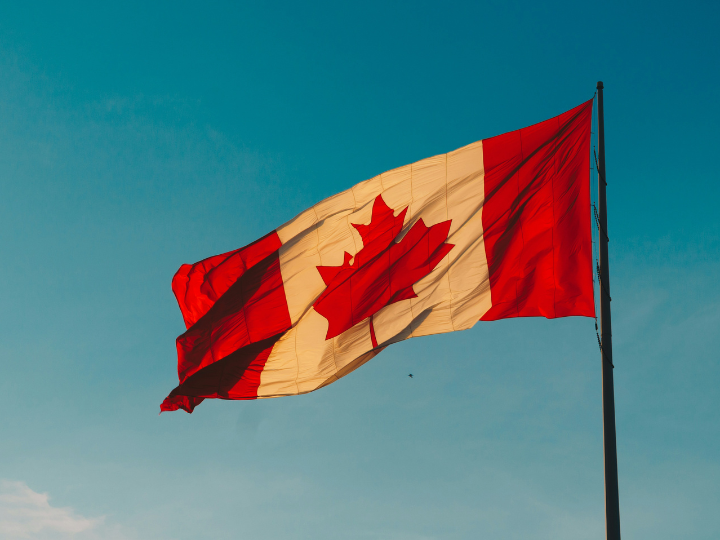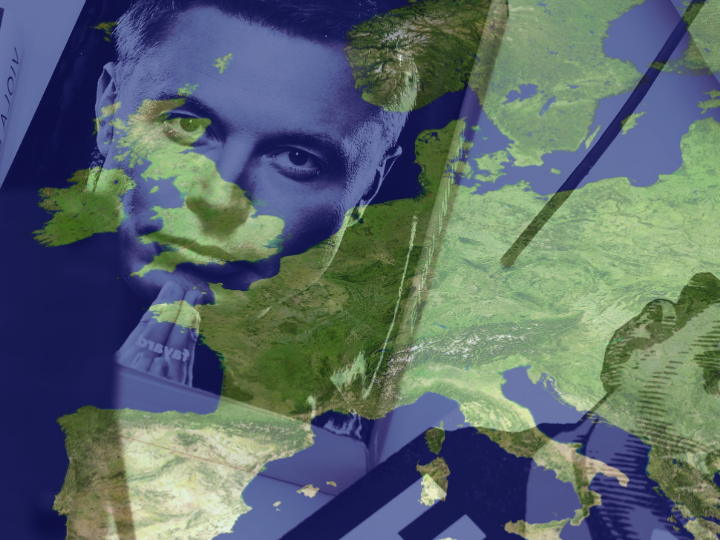by Jessica Murphy
For months now, Canada’s Prime Minister Justin Trudeau has been asked variations of the same question: "Will you step down?"
But though he vowed to stay on as Liberal Party leader - despite deepening frustrations amongst voters and a political rival surging in the polls - even the self-described "fighter" could not withstand the growing chorus of members of his own party calling for him to resign.
"This country deserves a real choice in the next election, and it has become clear to me that if I’m having to fight internal battles, I cannot be the best option in that election," Trudeau conceded on Monday, announcing his resignation in front of Rideau Cottage, his official residence for most of the last decade.
He will stay on as prime minister until a new Liberal Party leader is chosen, at a date yet to be set by the party.
Trudeau asked for parliament to be prorogued - or suspended - until 24 March to give time for the party to find a new leader.
Trudeau swept to power nearly a decade ago, heralded as the fresh face of progressive politics.
In 2015, swayed by his youthful charisma and a hopeful political message, voters catapulted the Liberals from a third-place party to holding a majority of seats in parliament - unprecedented in Canadian political history.
Now, he remains the only leader left standing among peers when he came into office, from Barack Obama to Angela Merkel, Shinzo Abe and David Cameron, and at 53 years old, is currently the longest-serving leader in the G7.
But in the years since his ascent to the global stage, and over two general elections, Trudeau and his brand have become a drag on the party’s fortunes.
Paul Wells, a Canadian political journalist and the author of Justin Trudeau on the Ropes, recently told the BBC he believes Trudeau will be remembered "as a consequential" prime minister, notably for providing genuine leadership on issues like indigenous reconciliation and, to some extent, climate policy.
But he is also one "who felt increasingly out of touch with public opinion and was increasingly unable to adjust to changing times".
On Monday, Trudeau was quick to tout what he was proud of accomplishing in office, including navigating the tumultuous Covid pandemic, renegotiating a free trade deal with the last Trump administration, and implementing a child benefit widely seen as helping alleviate poverty.
But a series of ethics scandals early on began to take the sheen off the new government - he was found to have violated federal conflict of interest rules in the handling of a corruption inquiry – the SNC-Lavalin affair - and for luxury trips to the Bahamas.
In 2020, he faced scrutiny for picking a charity with ties to his family to manage a major government programme.
In a general election in 2019, his party was reduced to a minority status, meaning the Liberals had to rely on the support of other parties to stay in power.
A snap election in 2021 did not improve their fortunes.
More recently, Trudeau faced headwinds from cost of living increases and inflation that have contributed to election upsets around the world.
There was also frustration in the country over what was seen as struggles to deliver on big promises - an agenda that was "overfilled, overstuffed", said Mr Wells - and his handling of issues like immigration.
Late last year, the Liberals backtracked on ambitious immigration targets over concerns the issue was mismanaged, significantly cutting back on the number of newcomers allowed in Canada.
He also sometimes handed his opponents easy political wins, including when it came to light that he had worn black and brown face before holding office.
After more than nine years in power, he is among Canada’s longest serving prime ministers, and there is a general sense of fatigue and frustration with his government.
So the writing was on the wall.
A series of political blows made it clear Trudeau’s days were numbered.
Over the summer, voters rejected Liberal candidates in a handful of special elections in once-safe Liberal seats, leading to the beginning of internal party unrest.
He had become an increasingly polarising figure for the electorate - with Trudeau saying on Monday "it’s time for a reset" and for the "temperature to come down" in Canadian politics.
Andrew Perez, a principal at Perez Strategies, said it will be a challenge now for the Liberals to distance themselves from the Trudeau brand.
"That was a major aspect of their success - but that worked until it didn’t," the Liberal strategist told the BBC.
Public opinion polls for the Liberals had reached new depths in recent weeks, and attempts to change course with cabinet shuffles and tax breaks failed to make a dent.
A survey conducted over the holidays by the Angus Reid Institute suggested the lowest level of support for the party in their tracking, dating back to 2014.
Polls suggest the Conservatives - led by Pierre Poilievre, a 45-year-old career politician with a talent for a sharp campaign catchphrase - would win an election handily if it were held today.
The next election must be held by October, although both Poilievre and Jagmeet Singh, leader of Canada’s New Democratic Party, have said they will seek to send Canadians to the polls as soon as parliament is back in March.
The political instability comes as the country faces a number of challenges - not least the vow by US President-elect Donald Trump, who takes office on 20 January, to impose of 25% tariffs on Canadian goods.
Yet still, up until the very end, Trudeau seemed determined to hang on, citing his desire to face Poilievre - his ideological opposite - in the polls.
But the shock resignation of Trudeau’s key deputy, former Finance Minister Chrystia Freeland, in mid-December - where she cited his perceived failure to not take Trump’s threats seriously - proved to be the final straw.
Members of his own party began to make it publicly clear they no longer supported his leadership.
And with that, the last domino fell.
*first published in: Bbc.com




 By: N. Peter Kramer
By: N. Peter Kramer

